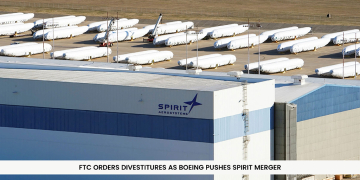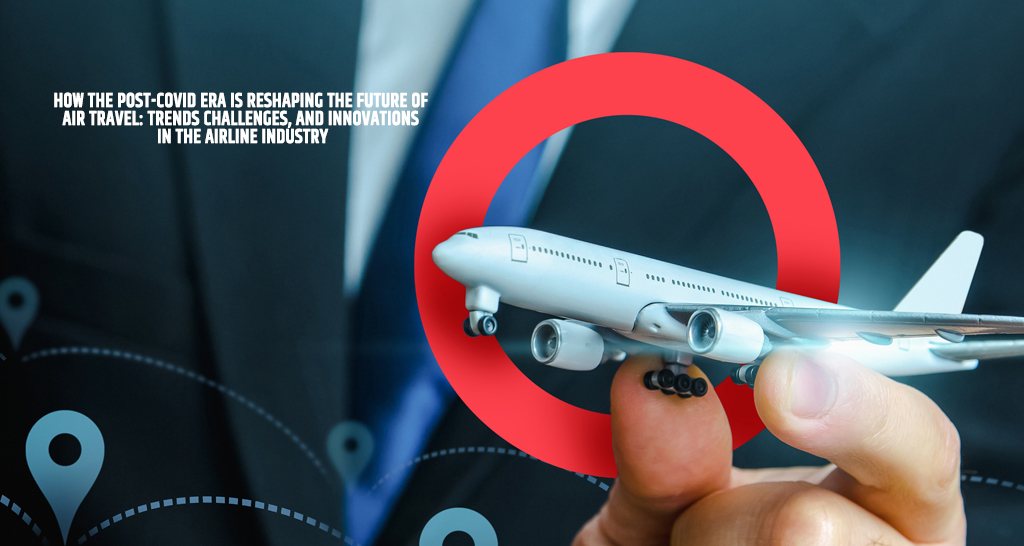The COVID-19 pandemic significantly transformed the global travel environment, presenting the airline industry with unparalleled difficulties. Faced with stringent travel restrictions, a steep drop in passenger demand, and the economic repercussions of global lockdowns, the aviation sector encountered unforeseen disruptions. Nevertheless, as the world begins to recover from the pandemic, the airline industry is experiencing a noteworthy evolution. In the post-COVID landscape, air travel is adapting to emerging trends, tackling new challenges, and adopting innovative strategies to guarantee the safety and satisfaction of passengers while responding to the needs of a swiftly changing world.
Key Trends Reshaping the Airline Industry
- Increased Focus on Health and Hygiene: One of the most prominent transformations in air travel following the pandemic is the increased emphasis on health and hygiene. The COVID-19 crisis has highlighted the critical need for sanitation, prompting airlines to implement rigorous cleanliness protocols. Significant investments have been made in improved cabin cleaning practices and advanced air filtration systems to guarantee passenger safety during flights. Additionally, numerous airlines have adopted touchless technologies for check-in, boarding, and in-flight services to minimize physical interactions between passengers and crew.
- Remote Work and Bleisure: The pandemic has significantly transformed the nature of work for many individuals. The emergence of remote work has resulted in a growing trend of combining business and leisure travel, often referred to as “bleisure” travel. Consequently, there has been a heightened demand for more adaptable flight schedules and extended stays, as employees are now able to carry out their professional responsibilities from nearly any location.
- Sustainability and Eco-friendly Innovations: As awareness of climate change continues to grow, sustainability has emerged as a vital priority within the airline sector. Before the pandemic, airlines were already beginning to investigate environmentally friendly alternatives due to rising environmental concerns; however, the COVID-19 pandemic has intensified this emphasis. The airline industry is currently seeking methods to diminish its carbon emissions, a major point of criticism it has encountered.
- Digitization and Artificial Intelligence (AI): Digital transformation plays a crucial role in redefining the landscape of air travel. Airlines are utilizing digital technologies to enhance various aspects of their operations, including ticketing, check-ins, baggage tracking, and customer service, thereby improving the overall experience for passengers. A significant advancement in this area is the implementation of biometric systems. Numerous airports are now incorporating facial recognition technology to expedite the check-in and boarding processes, which decreases reliance on physical documents and shortens waiting periods.
Artificial intelligence is increasingly employed to enhance flight operations and boost efficiency. Airlines are leveraging machine learning algorithms to forecast and address delays, optimize fuel usage, and refine flight schedules. Furthermore, AI-driven Chabots and virtual assistants are improving customer service by offering tailored support to passengers, responding to inquiries, and resolving issues promptly.
Key Challenges Facing the Airline Industry
- Labor Shortages and Staffing Issues: The airline sector has encountered considerable workforce reductions as a result of the pandemic, resulting in numerous employees being furloughed or terminated. With the resurgence of travel demand, airlines have found it challenging to rehire and adequately train sufficient personnel to accommodate the increase in passengers. Consequently, this situation has resulted in delays, cancellations, and unsatisfactory experiences for travelers.
The difficulties are especially apparent in sectors like ground services, airport check-ins, and baggage handling, where a lack of personnel has resulted in increased wait times. In response to this challenge, airlines are allocating resources toward automation and artificial intelligence to enhance operational efficiency and lessen reliance on human labor. Nevertheless, the issue of staffing continues to be a persistent concern for numerous stakeholders within the industry.
- Rising Operational Costs: The resurgence of air travel has been promising; however, the airline sector is confronted with escalating operational expenses, presenting a considerable obstacle. Factors such as the increasing price of jet fuel and inflationary impacts on materials and labor are contributing to heightened costs for airlines, which may result in higher ticket prices. This situation could discourage certain passengers from flying, particularly in light of the ongoing global rise in the cost of living.
- Uncertainty and Geopolitical Risks: The worldwide demand for air travel has mostly rebounded; however, considerable risks persist due to geopolitical instability, including the ongoing conflict in Ukraine, trade disputes, and erratic shifts in governmental policies. Travel restrictions can be reinstated swiftly, creating uncertainty regarding the future of international routes. Airlines need to maintain flexibility, prepared to modify their operations and strategies in response to evolving political and economic circumstances.
Furthermore, issues like the cost of fuel and fluctuations in foreign exchange rates can have significant effects on airline profitability, especially for carriers that operate on thin margins. Airlines will need to diversify their operations and remain adaptable in an increasingly volatile global environment.
Innovations Shaping the Future
- Urban Air Mobility (UAM) and Electric Vertical Takeoff and Landing (eVTOL) Aircraft: A significant innovation expected in the post-COVID era is the advancement of Urban Air Mobility (UAM), which has the potential to transform short-distance travel within urban environments. Electric Vertical Takeoff and Landing (eVTOL) aircraft, capable of vertical take-off and landing, are anticipated to alleviate congestion in cities and provide quicker, more environmentally friendly options compared to conventional ground transportation.
- Blockchain for Enhanced Security and Transparency: Blockchain technology holds significant promise for enhancing security, efficiency, and transparency within the airline sector. Airlines are investigating the application of blockchain across various functions, including ticketing and baggage tracking. By leveraging secure, decentralized ledgers, airlines can optimize their operations, mitigate fraud, and improve the passenger experience through faster and more secure transactions.
In conclusion, the post-COVID landscape offers significant challenges alongside promising opportunities for the airline sector. Issues related to health and safety, evolving travel behaviors, sustainability objectives, and technological progress are all influencing substantial transformations in air travel operations. Although the industry is contending with increasing operational expenses and workforce shortages, the innovations emerging in response to these difficulties could reshape the future of aviation. As global recovery and adaptation continue, the outlook for air travel appears to be increasingly rapid, sustainable, and tailored to individual needs.






